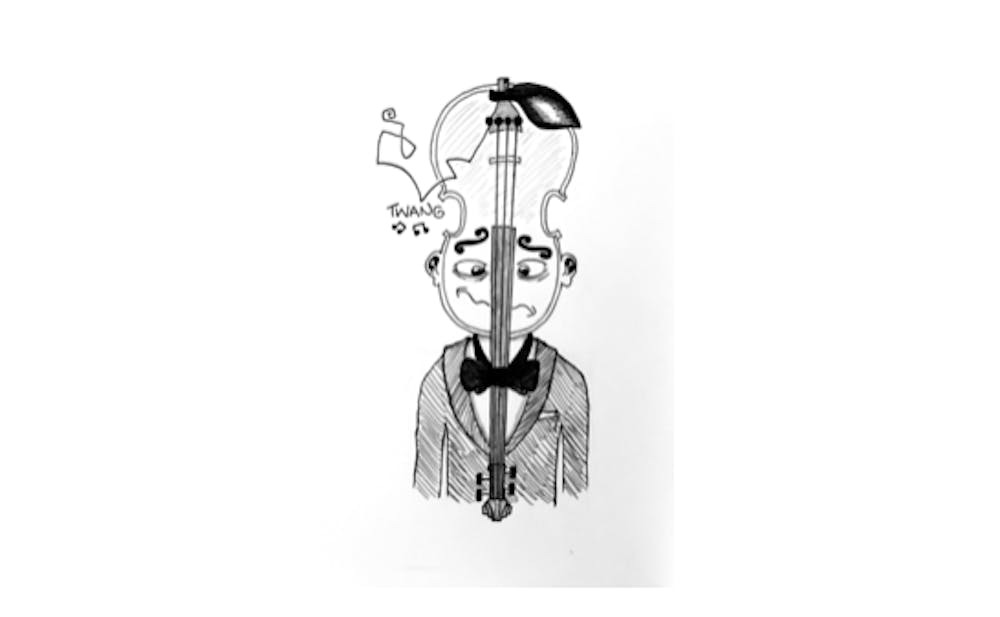The College’s Performing Arts Series will continue its tradition of bringing world-class artists to the community tonight, March 13, when the Elias String Quartet presents a free formal concert of Beethoven and Kurtag pieces.
The inspiration for the group’s name is taken from Mendelssohn’s oratorio, ‘Elijah,’ which is the German form of Elias. The quartet, which met in 1998 as first-year students at the Royal Northern College of England in Manchester, has quickly risen to the top of the classical music scene. Officially formed in 2004, the group gave their North American debut at the Concert Hall in March 2012 and soon after performed a sold-out, highly acclaimed concert at Carnegie Hall, cementing their place as an international force of vibrant musicality.
Chamber music aficionado and Professor Emeritus of Political Science Paul Nelson is in charge of chamber music programming at the College. After hearing about the Elias String Quartet from the agent of accomplished international pianist and frequent performer at the College Paul Lewis, Nelson decided to seriously consider adding the quartet to the Performing Arts Series program.
“He [Nelson] has an impeccable ear for rising talent,” Associate Director for the Performing Arts Series Allison Coyne Carroll said. “Professor Nelson reviewed the impressive list of premier chamber music venues they had played and awards they had won, gave the Elias a thoughtful listen, and then booked them to perform here in March 2012. Based on their stellar performance that evening, and audience response, Professor Nelson booked them to return this season.”
Violinists Sara Bitlloch and Donald Grant, violist Martin Saving and cellist Marie Bitlloch have garnered numerous accolades throughout their career together, including a residency as a part of BBC Radio 3’s New Generation Artists’ scheme in 2010 and the 2010 Borletti-Buitoni Trust Award.
It is through the financial support of the latter award, which aims to help outstanding young musicians develop and sustain international careers, that the quartet has been able to embark on their newest, most ambitious tour: The Beethoven Project. Beginning in Feb. 2011, the group endeavors to play all seventeen Beethoven string quartets as a cycle over four years, and will play Beethoven’s Quartet No. 4 in C Minor and his second “Razumovsky” quartet at their concert at the College.
Born in Germany in 1770, Ludvig van Beethoven is remembered as one of the most famous and influential composers of all time, crucially figuring into the transition between Classical and Romantic musical eras.
“Beethoven’s music holds a revered place in music history, and his works are often genius and complex,” Carroll said. “And despite their complexity, which is quite astonishing when you consider Beethoven’s failing hearing, there is also something very approachable about his music. There are very humanistic, reflective moments that can draw you right in.”
Though he is perhaps best known for his symphonies, concertos and sonatas for piano, Beethoven’s string quartets remain a beloved part of the Western music canon.
Beethoven’s Opus 18 was published in 1801, consisting of six string quartets. Widely considered to demonstrate his total mastery of the classical string quartet as developed by Haydn and Mozart, each of the six pieces contains four movements. It was not until 1806 that the three “Razumovsky” quartets, also referred to as Opus 59, achieved publication. Of this trio of works, the Elias String Quartet will be playing the four movements of Quartet No. 8 in E minor. The remaining eight quartets were published from 1809-1826, and the later works are thought to comprise Beethoven’s last major, completed compostitions.
In addition to the Beethoven selections, the quartet will present “Officium breve in memoriam Andreae Szervánszky” a work written in 1989 by Gyorgy Kurtag, a contemporary Hungarian composer born in 1926 with over 50 major compositions to his credit.
“Generally, when the majority of a program is by one composer (in this case, Beethoven), ensembles will choose other repertoire that either complements or contrasts,” Carroll said. “The Elias chose the latter when programming Kurtag. The Elias is also an ensemble committed to performing works by living composers. During this season, when much of their programming was written between 1795-1826, I’m sure the quartet also enjoys the opportunity to vary their rehearsal and performance works.”
A free lecture and demonstration by the Elias String Quartet planned for the afternoon of Wednesday, Mar. 12 about the Beethoven Project was cancelled due to Winter Storm Vulcan.
Between now and early May, the quartet will play sixteen concerts in locations ranging from Maine to Texas to England to Austria, transitioning from university performance venues to concert halls of international prestige throughout the tour. A complete documentation of “The Beethoven Project,” expected to be completed in 2015, can be found at www.thebeethovenproject.com.
The concert is presented as a part of a decade-long collaboration between the Performing Arts Series and the Institute for Clinical Science and Art, through which the Institute provides complete funding to present one or two high-profile string quartet concerts free of charge each year. This gift is made in memory of F. William Sunderman Jr. and Carolyn Reynolds Sunderman.
The free concert will begin at 7:30 p.m. in the Concert Hall of the Kevin P. Mahaney ’84 Center for the Arts tonight, March 13.
Artwork by NOLAN ELLSWORTH




